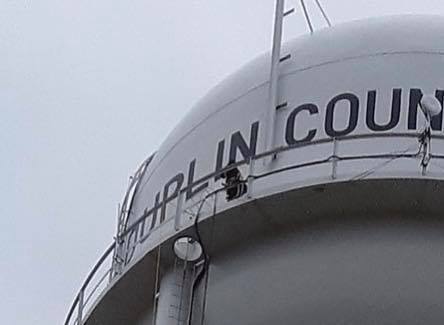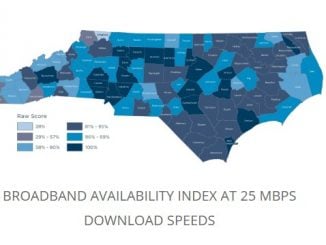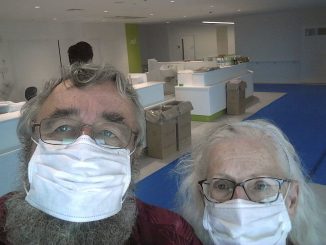
DUPLIN COUNTY — Nearly three years have passed since Susan G. Myers, along with a group of local entrepreneurs and small business owners in and around Eastern North Carolina, had the courage and vision to start a broadband company to serve the residents of Duplin County. Now, in the midst of a pandemic, their work has become more important than ever as COVID-19 has introduced a new set of challenges for many of the state’s rural counties.
“COVID has presented a unique opportunity for rural counties such as Duplin County to recruit city workers to move to rural areas and work remotely,” says Myers, Managing Partner and CEO of Eastern Carolina Broadband (ECB). “The key is that the rural areas must have access to high speed internet or people won’t move there. This is an opportunity for the poor rural counties to increase their tax and income base.”
ECB Managing Partner and COO Al Rachide says customers are thrilled to finally have access to the internet, after what up until January 2018, had been years of waiting. “Especially during COVID, the capacity for home schooling, working from home, remote learning, and even video streaming has made our service indispensable to many of our customers,” Rachide says.
It’s widely recognized that even before COVID took hold, the state’s low-income and rural areas have far less access to high speed Internet. In fact, Jeff Sural, director of the N.C. Department of Information Technology’s Broadband Infrastructure office gave a presentation to lawmakers earlier this year laying out the seriousness of the problem. According to his research, over 261,000 households in certain rural areas still lack access to broadband. Sural found that while the percentage of our state’s connected households remains higher than the national average, broad swaths of rural North Carolina, including some of its most low-income areas, were entirely left out. “The primary reason for low adoption or lack of adoption of Internet service is cost,” Sural said. The second is access itself, though.”
The terms broadband and high-speed internet are essentially synonymous. “The term broadband commonly refers to high-speed Internet access that is always on and faster than the traditional dial-up access. It is like referring to a car as an automobile. They both mean the same thing,” Myers says. ECB supplies reliable wireless broadband connections to homes and businesses in their service areas that are based on high speed fiber connections.
But the logistics behind their ability to build out and offer what is known as “fixed wireless” infrastructure is fascinating. Myers says that after conducting a survey in 2016 they learned it would simply cost far too much to run fiber to every home in their rural area. So ECB joined the wireless internet service providers association and learned about new and improved technology available for fixed wireless internet service. “Simply put, we can now run fiber up existing vertical assets such as water towers, grain elevators, old communication towers, and then beam internet via a radio signal to other vertical assets, to utility poles and then to customers,” Myers explains.
“Simply put, we can now run fiber up existing vertical assets such as water towers, grain elevators, old communication towers, and then beam internet via a radio signal to other vertical assets, to utility poles and then to customers.” — Susan G. Myers, CEO of Eastern Carolina Broadband
“The key for us to be able to offer internet service to the rural areas has been this partnership with the owners of the water towers and grain elevators. The Duplin County Commissioners were instrumental in partnering with us. In Jones County, we have partnered with every water tower owner and every grain elevator to build a network. To make it affordable, we must have a partnership with the local government, farmers and leaders.”
Rural areas tend to be the very last to benefit from the development of any new technology. Recognizing the urgency and that the area’s schoolchildren and farmers were falling behind, Myers formed ECB from her home in Pink Hill with the goal of delivering high speed internet access to the thousands of residents who had been living without internet altogether
According to 2017 data, over 12,000 of Duplin County’s 58,000 residents were without the essential technology. As a result Myers says she was motivated to reach as many homes and businesses as they could based on the availability of fiber connections. Through their tireless efforts, ECB has not only connected 1,200 Duplin residents, but has expanded into other parts of the state including Lenoir and Jones Counties as well as the southern part of Wayne County. They plan on expanding into western Craven and southern Pitt in 2021. “We are very careful not to over-expand or jump to far away counties,” Myers says.
Myers says Eastern Carolina Broadband is a social investment and that while they expect to be profitable, their mission is to provide high speed internet to the unserved and underserved. “On average, we charge $59 per month for residents and $99 per month for businesses for 25/3 which is standard high-speed internet. We offer over 100 mbps in many locations. We have no data caps and no throttling. The speed you get at the end of the month is the same as the beginning of month. We have chosen to grow at a certain pace for the betterment of the greater community, rather than maximizing profits.”



